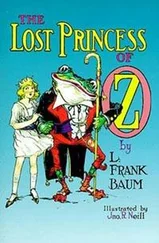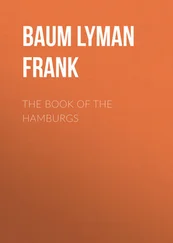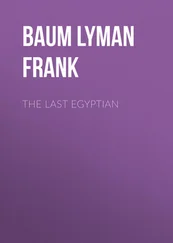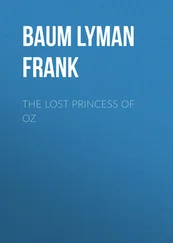L. Baum - The Last Egyptian
Здесь есть возможность читать онлайн «L. Baum - The Last Egyptian» весь текст электронной книги совершенно бесплатно (целиком полную версию без сокращений). В некоторых случаях можно слушать аудио, скачать через торрент в формате fb2 и присутствует краткое содержание. Год выпуска: 2019, Издательство: epubBooks Classics, Жанр: Прочие приключения, на английском языке. Описание произведения, (предисловие) а так же отзывы посетителей доступны на портале библиотеки ЛибКат.
- Название:The Last Egyptian
- Автор:
- Издательство:epubBooks Classics
- Жанр:
- Год:2019
- ISBN:нет данных
- Рейтинг книги:4 / 5. Голосов: 1
-
Избранное:Добавить в избранное
- Отзывы:
-
Ваша оценка:
- 80
- 1
- 2
- 3
- 4
- 5
The Last Egyptian: краткое содержание, описание и аннотация
Предлагаем к чтению аннотацию, описание, краткое содержание или предисловие (зависит от того, что написал сам автор книги «The Last Egyptian»). Если вы не нашли необходимую информацию о книге — напишите в комментариях, мы постараемся отыскать её.
The Last Egyptian — читать онлайн бесплатно полную книгу (весь текст) целиком
Ниже представлен текст книги, разбитый по страницам. Система сохранения места последней прочитанной страницы, позволяет с удобством читать онлайн бесплатно книгу «The Last Egyptian», без необходимости каждый раз заново искать на чём Вы остановились. Поставьте закладку, и сможете в любой момент перейти на страницу, на которой закончили чтение.
Интервал:
Закладка:
The dragoman said nothing to Kāra about Winston’s frequent visits to Aneth. During his hours of watching Tadros indulged in reflection, and these musings encouraged a growing resentment toward his master that destroyed much of his value as a confidential servant. Aside from the resentment, Tadros was afraid of Kāra, and also uneasy as to his financial condition. The prince, who was accustomed to scatter money with a liberal hand, had of late refrained from exhibiting a single piastre. Tadros wondered, and grew suspicious. One evening, as he reported to Kāra, he said:
“The tradesmen are clamoring for their money. They say you are not paying them as promptly as you did heretofore.”
Kāra looked up with surprise.
“Is not my credit good?” he inquired.
“For the present, yes,” replied the dragoman; “but it will not remain good unless you begin to pay for all the magnificence you are putting into this villa.”
“I see,” said Kāra, nodding thoughtfully. “They are fools, my Tadros, but they might become troublesome. Keep them satisfied with promises for a time longer. That should not be a difficult task.”
Tadros looked at him distrustfully.
“Tell me, my prince; have you spent all your treasure?” he asked.
The Egyptian smiled.
“If I should live a thousand years, my Tadros,” he returned, “I could not spend the half of it.”
“Then why do you not pay these merchants?”
“Because I have at this time no more money in the bank, and it is not convenient for me to leave Cairo just now to secure a further supply.”
“Oh, I see!” remarked the dragoman, heaving a sigh of relief. “You must make another trip to Fedah.”
Kāra gave him one of those intent, thoughtful looks that always made Tadros uneasy; but when he spoke his voice sounded soft and pleasant.
“What causes you to think my treasure is at Fedah, my good friend?” he asked.
The tone reassured the dragoman.
“It stands to reason, my prince, that it is there,” he answered, with frank indifference. “Do I not well remember first seeing the papyri in your house, and afterward carrying away from there the heavy traveling case that was filled with precious gems?”
“Ah! was it?”
“Of course, Kāra. How else could you give so many ancient gems to the Van der Veens to recut, or turn so many more into money by selling them to Andalaft, the jeweler?”
“You have been observant, my Tadros.”
“It is natural. I am no fool. But if, as you say, there is more treasure at Fedah, I will undertake to keep the rascally tradesmen quiet until you can make another deposit in the bank.”
Kāra was still reading the countenance of his dragoman.
“It is quite evident that you are no fool, my Tadros,” he said, softly; “yet I had not imagined you capable of so much shrewdness and wisdom. Look you! Fedah consists of a rock and a few stone houses cemented with Nile mud. It is familiar to you, being your birthplace as well as my own. Now where do you suppose, within the limits of that simple village, a treasure could have been discovered?”
“It has puzzled me,” acknowledged Tadros; “but I suppose you do not wish me to know the exact location. Nevertheless, it is evident that the treasure is a very ancient one, and therefore it must have been hidden by your forefathers in the mountain itself, or perhaps on the desert that adjoins the village.”
“A long–buried and forgotten temple; eh, Tadros?”
“Oh, no; a tomb, of course! They did not keep pearls and rubies in the temples. Only in tombs could such trinkets be found. That is why I believe your statement that you are the last descendant of the great kings of Egypt; for this tomb was not discovered by accident, I know. The secret of its existence must have been handed down through the generations. Hatatcha knew, and told you of it before she died; so it is your personal property, and its possession proves your noble blood. I am glad the treasure is ample; for at the rate you are squandering money, it would otherwise be soon exhausted.”
“Very wisely argued, indeed,” said Kāra. “I wonder how much of my inheritance has already found its way into your own pockets.”
“Not too much, you may be sure,” answered the dragoman, gravely. “I am very honest, and take only my rightful perquisites. It is better that these trifles should go to me than to strangers, for I am your own kinsman and almost as pure an Egyptian as yourself.”
“True. I do not complain, my Tadros. But in acquiring my money you should take care not to acquire too much knowledge of my affairs with it, for such knowledge is liable to prove extremely dangerous. Consider the pearls of wisdom that have even now dropped from your lips. Must they not be repaid? And already I am greatly in your debt.”
“You are talking riddles,” growled the dragoman, uneasily. “Tell me what you mean in plain words.”
“Do you remember the day that Nephthys broke her water–jar?”
“Yes.”
“You struck me, your prince, and knocked me down.”
“Well, you choked me afterward. That should even the score.”
“Not quite. I choked you for spying upon me. That was another offense. The blow has not yet been accounted for.”
Tadros frowned.
“I do not bear grudges myself,” he muttered.
“There are a few other matters scored against your account,” continued Kāra. “Still, so long as you serve me faithfully, and I have need of you, I shall not exact a reckoning; but they stand on record, my Tadros, and some day the account must be balanced. Do not forget that. For these reasons, and remembering that you have declared yourself no fool, I am certain that you will admit you were wrong about the location of my treasure. When you think it over, you will conclude that it lies in Luxor, or Abydos, or perhaps is a myth altogether, and never has existed. And, when you chatter to others, no mention of a hidden tomb or temple will be permitted to pass your lips. I am quite sure you will be circumspect, and I trust you to keep to yourself the secret of my affairs. If I thought you would betray me, I would kill you now, instead of waiting. But you will not do that; you are too fond of living and of the money you are saving to hazard losing both.”
Tadros returned to his duties in a very thoughtful mood. In playing upon his fears, Kāra had overreached himself, and made the dragoman so much afraid that he believed his life hung by a thread. Therefore, he sought most earnestly for a way of escape from the thrall of his terrible countryman.
The following morning Gerald Winston, on leaving Mrs. Everingham after a conference concerning their plans, met Tadros face to face in the corridor of the hotel. He recognized the man at once as Kāra’s dragoman and confidential servant. Moreover, he suspected that the fellow had just come from the Consinor apartments; so he had no hesitation in accosting him.
“May I speak with you a moment in private?” he asked.
“Most certainly, sir.”
Winston led the way into Mrs. Everingham’s drawing–room, where the lady greeted his return with surprise, but a quick appreciation of the importance of securing an interview with Kāra’s confidant.
“You are Prince Kāra’s dragoman, I believe?” began the Englishman.
“Yes, Winston Bey.”
“And devoted to him personally, of course?”
“To an extent, naturally,” returned Tadros, hesitating what to say. “You see, he pays me liberally.”
Winston and Mrs. Everingham exchanged glances. Then the lady took up the conversation.
“Prince Kāra,” she said, in a stern tone, “is a scoundrel, being even now engaged in perfecting one of the most diabolical plots the mind of man has ever conceived.”
Читать дальшеИнтервал:
Закладка:
Похожие книги на «The Last Egyptian»
Представляем Вашему вниманию похожие книги на «The Last Egyptian» списком для выбора. Мы отобрали схожую по названию и смыслу литературу в надежде предоставить читателям больше вариантов отыскать новые, интересные, ещё непрочитанные произведения.
Обсуждение, отзывы о книге «The Last Egyptian» и просто собственные мнения читателей. Оставьте ваши комментарии, напишите, что Вы думаете о произведении, его смысле или главных героях. Укажите что конкретно понравилось, а что нет, и почему Вы так считаете.












